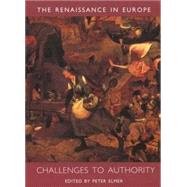The place of Renaissance science or natural philosophy is also the subject of critical evaluation in this book. Case studies on the anatomical revolution, Galileo and court patronage, and Paracelsus illustrate new approaches in the field. Subsequent chapters explore the Renaissance fascination with witchcraft and demonology in both learned discourse (Pico's Strix) and popular drama (The Witch of Edmonton). The volume concludes with a study of one of the most influential and provocative writers of the sixteenth century, Michel de Montaigne, whose Essays provide stimulating material for a reassessment of the









